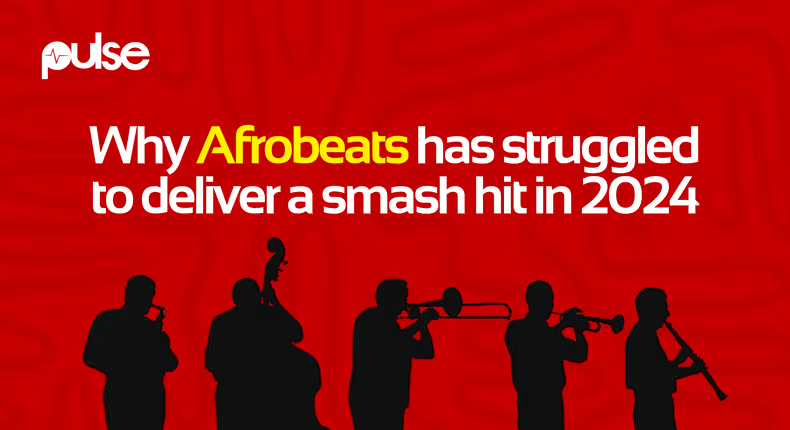While it might be easy to dismiss concerns about Afrobeats as cynical or reflective of an underappreciation for the current music ecosystem, the volume of hit records from recent years indicates that 2024 has been a slow year for the genre.
Both major stars and emerging artists have released records, yet a true smash hit has eluded the ecosystem. Songs like Ayra Starr’s “Comma,” Kizz Daniel’s tracks from the “TZA” EP, and singles from Seyi Vibez, Rema, Victony, and Asake have made headlines, but many failed to achieve the longevity and widespread acclaim needed to reach smash-hit status. This absence of standout tracks has contributed to a quiet year for Afrobeats, particularly on the global stage.
A CLOSER LOOK AT THE DECLINE
As Nigerian mainstream pop music appears to be experiencing diminishing returns, stakeholders are grappling with several factors behind this decline:
1. The Exhaustion of Amapiano Fusion
The introduction of the vibrant Amapiano sound from South Africa marked a significant shift in Nigerian pop music. Asake and producer Magicsticks spearheaded this sonic evolution, leading to a period of significant popularity. However, after nearly four years of exploration, the fusion seems to have peaked, with little new excitement on the horizon. As a result, songs are struggling to gain mass appeal, creating a stagnant atmosphere in the industry.
2. Less Risk-Taking and Little Innovation
On platforms like the Zero Conditions Podcast, discussions have highlighted that many songs are not connecting with audiences as they once did. Ayomide Tayo, a prominent pop culture writer, noted that several new generation artists sound like the third iteration of a superstar, lacking distinctiveness. This trend of similar-sounding records undermines the potential for hits, as creativity takes a back seat to template-driven music.
In contrast, Rema’s sophomore album “HEIS” has been described as a bold attempt to reclaim Afrobeats from Amapiano’s grip. Although opinions on the project vary, its ambition to push boundaries deserves recognition. Additionally, Victony’s “Stubborn,” Kaestyle’s focus on cultural roots, and Kizz Daniel’s exploration of indigenous sounds represent some positive risks that have emerged in 2024.
3. Saturation and Inflation in the Market
The rise of music streaming platforms and the “Afrobeats to the World” movement has led to an oversaturation of the market. With more artists entering the scene than ever before, there is an increased supply of music competing for the same listeners. This situation is exacerbated by the fact that only a small fraction of Nigeria’s nearly 200 million population is digitally connected, making it harder for artists to reach a broad audience.
The influx of resources has enabled artists to produce and market music at a rapid pace, but without the necessary distinctiveness, many releases fail to capture the attention needed to achieve hit status. In an era of fleeting online attention, saturation becomes a significant challenge.
A BROADER INDUSTRY TREND
It’s essential to note that Afrobeats isn’t the only genre struggling to deliver hit records in 2024. While Country and Pop music in the U.S. are thriving thanks to artists like Tedy Swims and Taylor Swift, hip-hop has had a more challenging year. The genre’s resurgence came from a viral feud between Drake and Kendrick Lamar, highlighting that even established genres face hurdles.
CONCLUSION: A CALL FOR INNOVATION
While luck plays a role in creating hit records, various issues have contributed to the lack of smash hits in 2024. The Afrobeats ecosystem, along with its artists, must innovate and move away from repetitive sounds. Emerging talents should harness their drive and creativity to craft unique music that stands out in a crowded market.
The big stars have carried the weight of hit record delivery for over a decade, but now, it’s crucial for underground artists to innovate and inspire mainstream success. For Afrobeats to reclaim its former glory, all players in the industry must step up and play their roles effectively.

